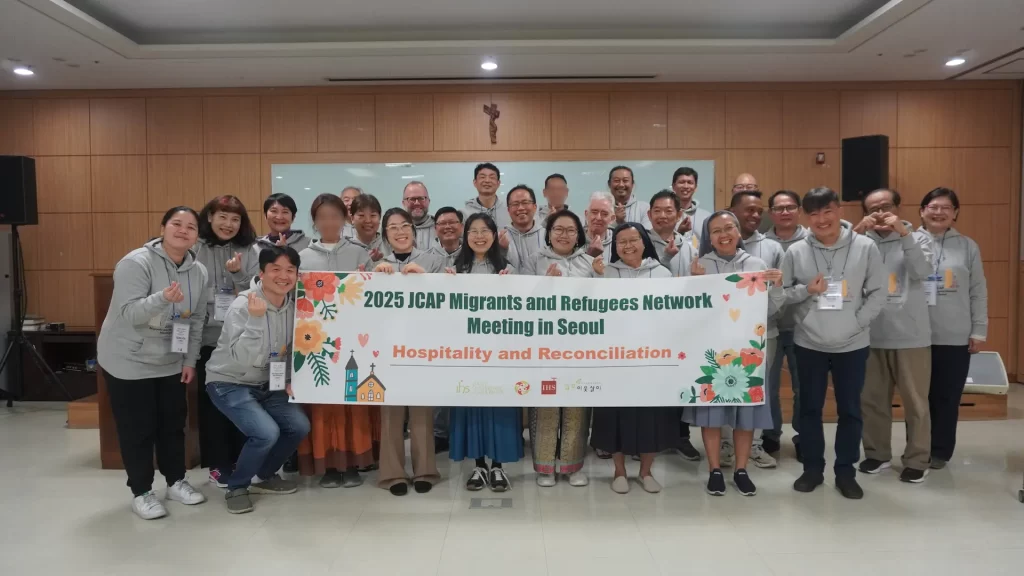How can we accompany refugees without responding to their longing for healing and peace? This is the question posed in a newly-published guide that aims to strengthen the role of Jesuit Refugee Service in the reconciliation of groups of people displaced through conflict.
Titled Recreating Right Relationships: deepening the mission of reconciliation in the work of JRS, the book is the result of an ongoing collaboration between JRS International and the Centre for Human Rights and International Justice at Boston College. It reflects a long-held desire among JRS staff to build elements of reconciliation into their work rather than focus on conflict, and was workshopped at a meeting hosted by the Metta Karuna Reflection Centre in Siem Reap, Cambodia.
The book emerged from long discussions among participants about JRS projects set in conflict zones around the world: Columbia, Indonesia, Syria, the Philippines and the Democratic Republic of Congo. Guiding the discussion was Christian scholar and reconciliation expert, Professor Steven Pope of Boston College’s Department of Theology, as well as scholars in Buddhism and Islam. The participants’ shared experiences working in reconciled and un-reconciled communities, articulation of principles of reconciliation and acknowledgement of the major religions’ views on peace and forgiveness were used to form the basis of the manual.
The Associate Director of JRS Australia, Sr Maryanne Loughry RSM, who attended the workshop and contributed to the book, said it was important to differentiate between different types of displacement and how they might impact on reconciliation.
“Some of the participants were from Colombia and Syria and the Philippines, where people are internally displaced, still within their own country, and JRS is helping to address their needs within country,” she explained.
“We also have people who’ve fled, who are maybe in camps or urban situations who need to still be alongside people they’ve been in conflict with. There are people who are returning to their homes post-conflict, but there are also people who are living within conflict and are often just internally displaced. All of those situations provide a challenge for people around needing to be reconciled with their neighbour, with their country, with themselves as to what they’ve seen or maybe perpetrated.”
The book is the latest in a growing number of resources produced by JRS in an effort to assist its staff in dealing with issues such as accompaniment and urban refugees. It draws on case studies and has been designed with questions to aid JRS staff in workshops for the particular situations in which they work.
Download the book here.






